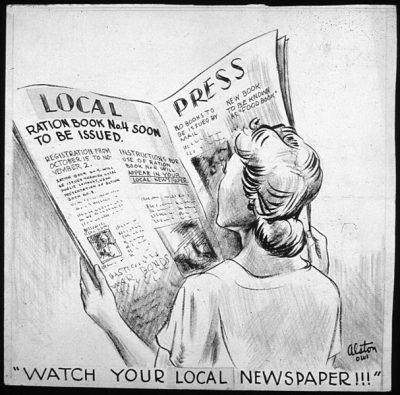
(Photo: Charles Henry Alston/ Wikipedia Commons)
The writers at the New York branches of news outlets DNAinfo and Gothamist decided to unionize in late October. Rather than bargain with them, their billionaire owner shut down the newsrooms altogether.
Every page from the DNAinfo and Gothamist websites now redirects to a letter from owner Joe Ricketts, announcing that the websites had not been profitable enough “to support the tremendous effort and expense needed to produce the type of journalism on which the company was founded.”
But money’s not in short supply for Ricketts, the founder of what’s now known as TD Ameritrade and the head of one of the richest families in America. Ricketts is, though, an open opponent of unions. He wrote earlier this year that unions “promote a corrosive us-against-them dynamic that destroys the esprit de corps businesses need to succeed.”
After the reporters in New York decided to unionize, Ricketts took just a week to decide that the entire venture —including the local newsrooms in Chicago, Los Angeles, San Francisco, and Washington, D.C. — was no longer worth it for him. The decision to shut down the sites reminded reporters of what they know all too well: there’s a crisis in funding journalism, especially the local kind. And many times, the money that does come in is dictated by whims of the ultra-wealthy.
On November 6, hundreds of people gathered at New York’s City Hall Park to declare that billionaires should not determine whether or not cities receive adequate local coverage. Laid-off journalists at the rally, organized by the Writers Guild of America, encouraged other workers in their field to consider unionizing to wrest some power back from owners like Ricketts.
The Economic Hardship Reporting Project is taking another, more immediate step to fill the coverage gap. In response to the shutdown, EHRP has established a $5,000 fund for feature-length articles from three former Ricketts’s employees “who have suddenly been deprived of their livelihoods by the capricious actions of an anti-labor billionaire.”
EHRP (which, like Inequality.org, is affiliated with the Institute for Policy Studies) was founded by Barbara Ehrenreich, a journalist with a particularly strong understanding of the precarity of the modern workplace. Her bestselling book. Nickel and Dimed: On (Not) Getting by in America, played an instrumental role in highlighting the living conditions of the country’s minimum wage workers.
“This fund is entirely consistent with EHRP’s mandate,” Ehrenreich said in an interview with Inequality.org. “In addition to getting out great stories on inequality, we’re also trying to support journalists by paying them $1 per word. That’s what people like me used to get.”
